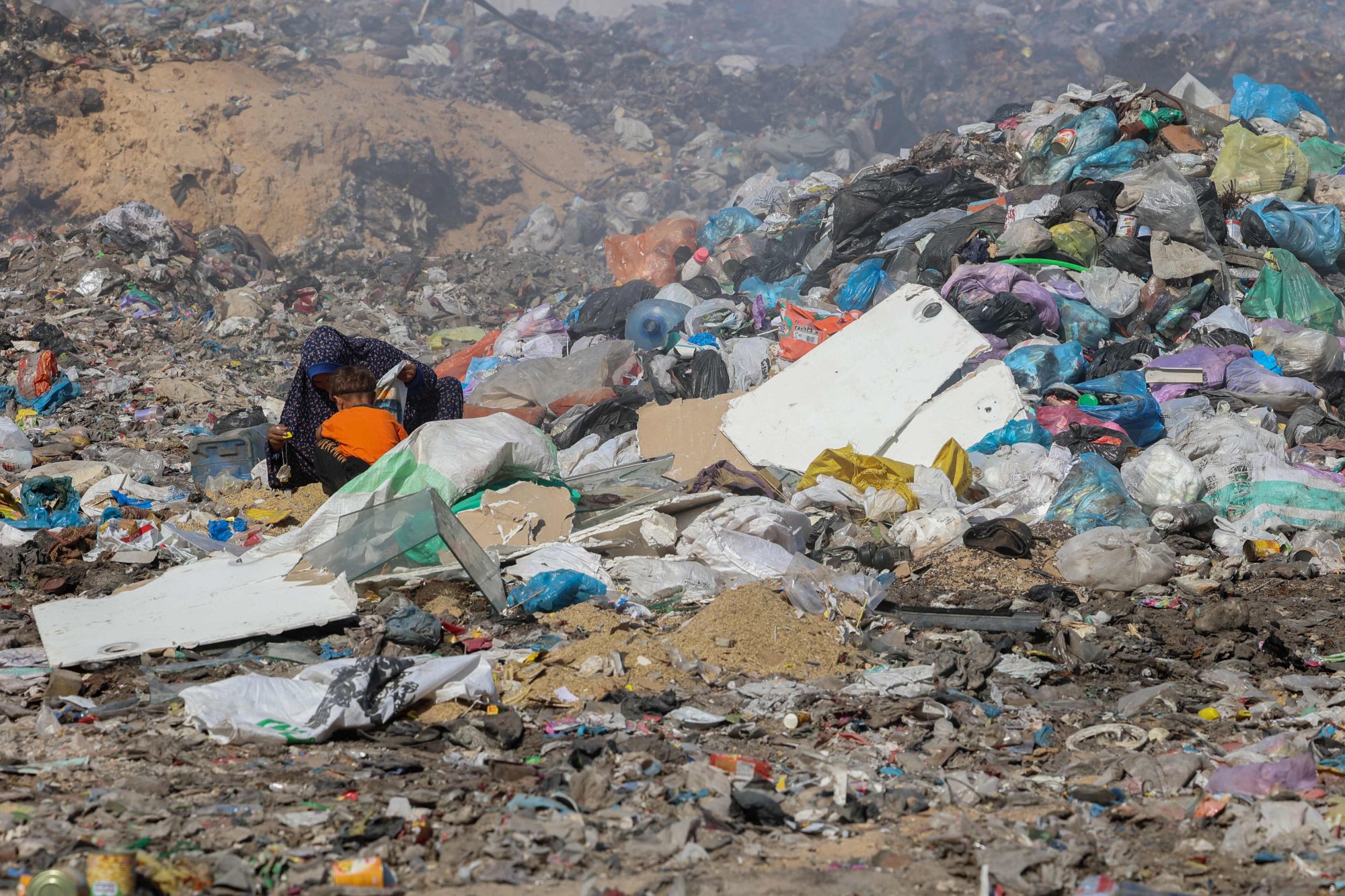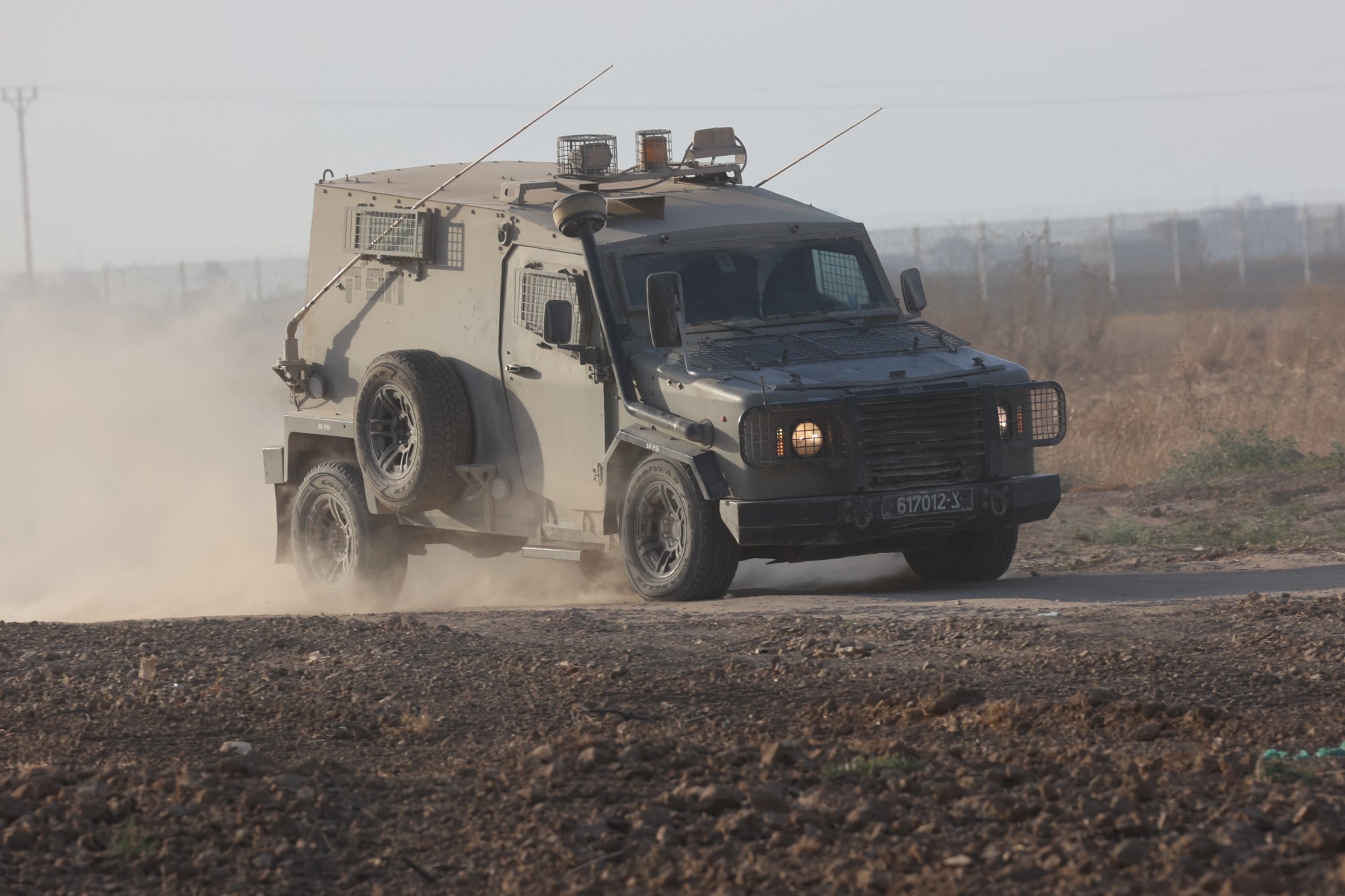
Israel’s Netanyahu will only accept partial ceasefire deal with Hamas that would not end Gaza war
- Netanyahu’s comments come at a sensitive time as Israel and Hamas appear to be moving further apart over the US-backed ceasefire proposal
Israeli Prime Minister Benjamin Netanyahu has said he will only accept a partial ceasefire deal that would not end the 8-month-long war in Gaza, casting doubt on the viability of a US backed ceasefire proposal.
Netanyahu made the comments late on Sunday in an interview with Israeli Channel 14, a conservative, pro-Netanyahu station. He was ready to make a partial deal to bring back some of the 120 hostages still held in the Gaza Strip, but “we are committed to continuing the war after a pause, in order to complete the goal of eliminating Hamas.”
The comments come at a sensitive time as Israel and Hamas appear to be moving further apart over the US-backed ceasefire proposal, and could represent another setback for mediators trying to end the war.
The three-phased plan would bring about the release of the remaining hostages in exchange for hundreds of Palestinians imprisoned by Israel. But disputes and mistrust persist between Israel and Hamas over how the deal plays out.
Hamas has insisted it will not release the remaining hostages unless there’s a permanent ceasefire and a full withdrawal of Israeli forces from Gaza.
Israeli ground offensives and bombardments have killed more than 37,500 people in Gaza, according to the territory’s Health Ministry, which does not distinguish between combatants and civilians in its count.
Israel launched the war after Hamas’ October 7 attack, in which militants stormed into southern Israel, killed some 1,200 people – mostly civilians – and abducted about 250.

Israel strike kills health workers
Palestinian officials say Israeli air strikes in Gaza City have killed at least nine people, including two health workers.
The strikes late on Sunday came months after Israel declared that it had mostly dismantled Hamas in Gaza City and the rest of northern Gaza, which Israeli forces have surrounded and largely isolated since the earliest days of the ground invasion.
The Gaza Health Ministry said the strike on the Daraj clinic in Gaza City killed Hani al-Jaafrawi, director of the ministry’s ambulance and emergency department. First responders with the Civil Defense said another health worker, Mohammed Salah, was also killed.
The ministry said Israeli bombardments of Gaza have killed more than 500 healthcare workers since the start of the war, and that more than 300 others have been detained.
In a statement, the Israeli military said the strike targeted Mohammad Salah, who it said was responsible for developing Hamas weaponry.
“Salah was part of a project to develop strategic weaponry for the Hamas terrorist organisation, and he commanded a number of Hamas terrorist squads that worked on developing weapons,” it said.
The Civil Defense said seven other people were killed in a separate strike on Sunday that flattened a home in the Sabra neighbourhood in Gaza City. It said rescuers are searching for another missing person.
The Civil Defense, which like the Health Ministry is part of the Hamas-run government, is often the first to respond to air strikes and frequently releases videos of its rescue efforts.

Israel pushes deeper into Rafah
In Rafah, near the border with Egypt, Israeli forces which took control of the eastern, southern, and central parts of the city pursued their raid into the western and northern areas, said residents, describing heavy fighting.
On Sunday, residents had said Israeli tanks had advanced to the edge of the Mawasi displaced persons’ camp in the northwest of Rafah, forcing many families to leave northward to Khan Younis and to Deir Al-Balah in central Gaza, the only city in the enclave where tanks have not yet invaded.
“The situation in Tel Al-Sultan, in western Rafah, remains very dangerous. Drones and Israeli snipers are hunting people who try to check on their houses, and tanks continue to take over areas overseeing Al-Mawasi further west,” said Bassam, a resident of Rafah.
“We know about people killed in the streets, and we know, and we see that dozens of houses had been destroyed by the occupation,” he said.
Israel denies targeting civilians and blames Hamas for provoking civilian casualties by fighting among them, which Hamas denies.
The Israeli military said forces continued “intelligence-based targeted operations” in Rafah, locating weapons and rocket launchers and killing militants “who posed threats to them.”


